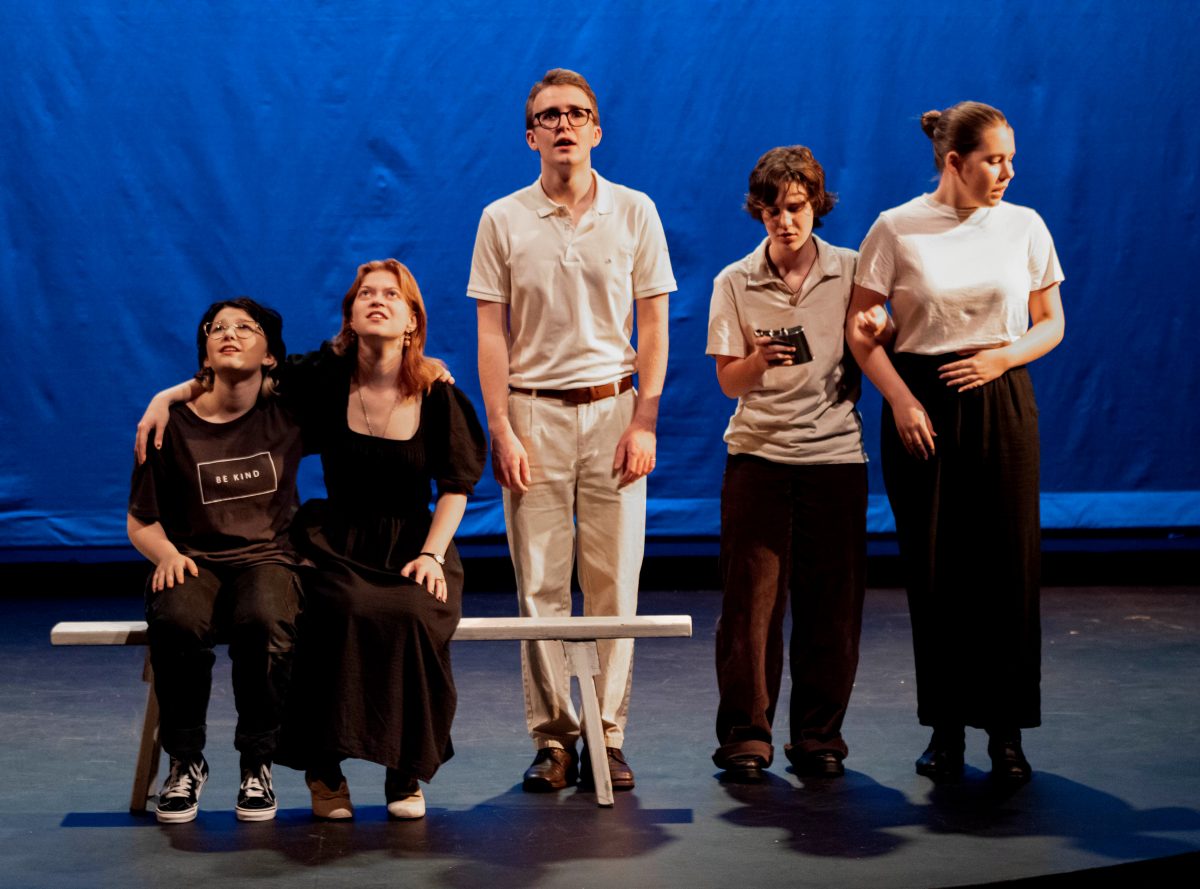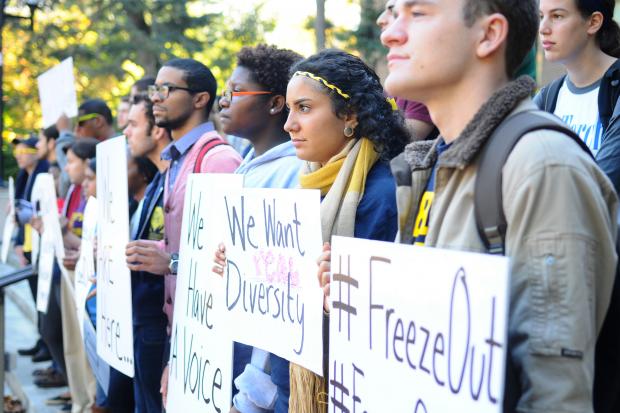Michael Gross
This February, in honor of Black History Month, ESPN aired “Ghosts of Ole Miss,” a film documenting James Meredith’s 1962 journey giving the University of Mississippi protection from the federal government. While watching, I found myself thinking about how much our world has changed. The abuse Meredith received was unfathomable – this could never happen on a college campus today, or so I thought.
Just a few weeks ago, Tanzina Vega of the New York Times published an article depicting the recent rise in racial tensions at the University of Michigan, an institution recognized nationally for its diverse and welcoming atmosphere.
This article discussed the hundreds of students and faculty members that gathered for a 12-hour “speak out” to address racial tensions culminating from a recent fraternity party that had been cancelled due to protests. The hosts, who were mostly Asian and white, had invited “rappers, twerkers, gangsters” and others “back to da hood again.” This was simply the tipping point of what has been a general feeling of isolation amongst black students on the Michigan campus – as represented by a decline in black enrollment from 6.2 to 4.6 percent of the total student population in the last three years, begging the question: how far have we come?
Similar episodes have strained other colleges around the country as racial tensions have resurfaced. Last November, at Lehigh University in Pennsylvania, the Umoja House, a multicultural residence hall, was vandalized with a series of racial epithets. It was a hate crime designed to hurt and alarm the entire community; unfortunately, their mission was at least partially successful, showcasing that many college students are unprepared to deal with racism in this “post-racial” society.
How about Latin students? Are we different?
Yes and no.
We have an active Black Student Union and open discussions about racial stereotypes, but we rarely address racism when we see it. Students often leave these discussions questioning their purpose: it’s Latin; we are not racist, so why do we have to be lectured on this subject? And, believe me, I have had the same thought. Notwithstanding, it saddens me to say it, but we are not a completely accepting environment. While the racism and judgmental behavior is subtle compared to the “real world,” it unfortunately still exists. Ms. Majiid, the Representative for Students of Color and a Latin alum agrees, recalling, “several issues that existed when [she] was student” that are still present today. Nonetheless, Ms. Majiid acknowledges the astronomical difference between Latin and other schools around the country, recognizing, “we have come a long way, much farther than other schools, but we have a long way to go.”
The vast majority of the racism at Latin occurs subconsciously or in a joking manner, with no harm intended. The harsh reality is that whether intended or not, any action can be perceived as hurtful, and one innocent joke could contribute to the recent resurgence of this interminable issue.
We must be careful to ensure that the monitoring of the subtle racism does not simply generate the same reaction from the student body: ignorance. We have grown up in an environment that has encouraged us to fight our innate recognition and become “colorblind,” and while commendable, is that what we really want? Don’t we want to celebrate who we are as individuals? Ms. Majiid agrees, “It is impossible not to notice the color of someone’s skin – that is something you see. You cannot ignore someone’s race, [but] what you can do is avoid negatively judging someone based on their race, [and] I think that is what we should strive for.”
In 2006, Michigan residents voted in favor of Proposition 2, which prohibited affirmative action based on race or ethnicity in admissions and hiring at public institutions, reinforcing the increasingly popular attempt to become “colorblind.” Our race is an important part of who we are and cannot simply be put to the wayside – that is not the answer.
Even if it were possible, it would not be beneficial to be “colorblind”. Colorblindedness implies that race does not exist, and whether we like it or not, race is relevant: it is who we are – our identity and our heritage. We live in a multiracial, integrated world that makes our lives richer, and we should celebrate everyone’s color and culture.
Civil rights activist Audre Lord once said, “It is not our differences that divide us, it is our inability to recognize, accept, and celebrate those differences.” As a Latin community, we have to focus our energy on celebrating our differences, rather than attempting to remove them.
]]>




































